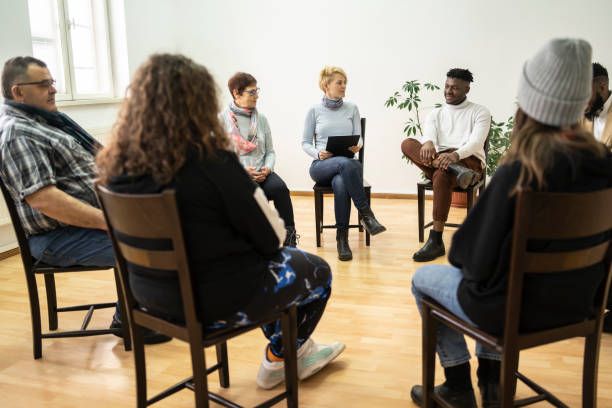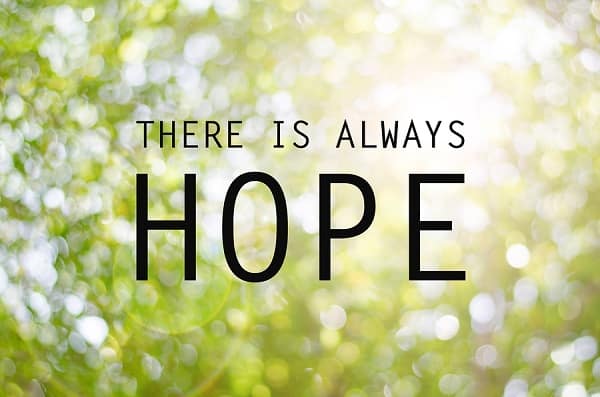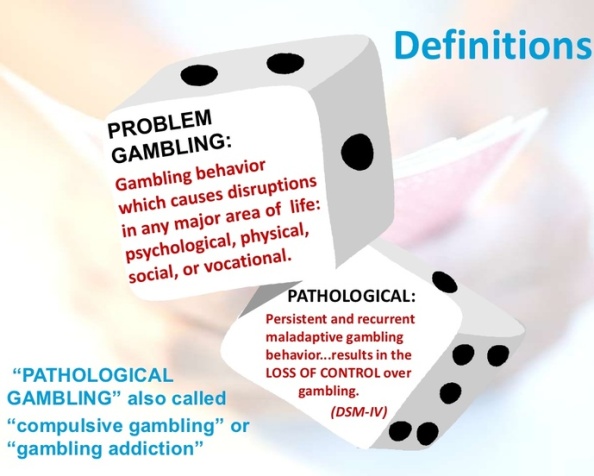~Know The Odds
Post and Article Share Courtesy of the fine friends of https://knowtheodds.org/ – “Know The Odds,” a fantastic resource for problem gamblers and their families.

RECOVERY MONTH: THE IMPORTANCE OF SUPPORT AND HOPE
POSTED ON
Every day, millions of individuals across the globe are recovering from addicted gambling and mental and substance abuse disorders.
Among those conditions is problem gambling, medically defined by the DSM-5 as Disordered Gambling. Problem gambling affects approximately 2 million people nationwide, with another 4-6 million at risk. During this month of understanding recovery and the disorders and addictions individuals struggle to overcome, we want to shine a light on those affected by problem gambling.
It’s a disorder that isn’t easily noticed and isn’t often talked about. We refer to it as the hidden addiction because it can be hard to recognize the signs until the disorder has begun to seriously affect the individual’s health or cause significant financial problems.

WHAT WAS RECOVERY MONTH?
National Recovery Month is celebrated by many in the addiction and recovery community throughout September, serving as a way to recognize those living with mental and substance abuse disorders and their loved ones fighting the battle alongside and behind them. Substance Abuse and Mental Health Services Administration (SAMHSA) provides resources, updates, and ways to get involved on their site.
Many organizations are using this month to share recovery stories, organize events and spark a dialogue about mental and substance abuse disorders. While these conversations should be happening year-round, taking a month to recognize the importance of recovery is an important place to start.
UNDERSTANDING GAMBLING DISORDER & RECOVERY
Problem gambling can happen to anyone. It’s a disorder that knows no limits of age, gender, or ethnicity. It doesn’t care about your background or the numbers on your paycheck. There are many ways to gamble, from initially low-stakes to high, and they can all end up costing the individual more than they bargained for.
It’s essential to recognize that disordered gambling tends to co-occur with other addictions, such as alcohol or drug dependence. According to the National Epidemiologic Survey on Alcohol and Related Conditions (NESARC), 73.2 percent of people with a gambling disorder also had an alcohol use disorder. Likewise, 31.8 percent had a drug use disorder. While co-occurring disorders aren’t always a part of gambling disorders, it’s also important to be aware of the correlation.
Experiencing multiple disorders calls for different approaches to treatment and recovery. To get the most effective treatment, it’s vital for individuals to acknowledge their gambling disorder and anything else they have recognized is affecting them.
Why is recovery so important? Problem gambling has the highest rate of suicide of all addictions.
The journey to recovery requires a bit of planning and commitment. You can cross the finish line, but you must prepare yourself for the obstacles ahead.
What are you going to do with the time you used to spend gambling?
How are you going to avoid old triggers?
Will you become dependent on another unhealthy activity or substance?
These are all real, severe questions that many problem gamblers face at the beginning of their recovery. They may be tough to answer, but thinking about them now will help you continue a successful and lasting recovery. You will need to consider your lifestyle, behaviors, and habits when embarking on your journey to be prepared for the challenges you may face. Find more tips on facing recovery in our ebook on staying safe after problem gambling.
DON’T BE AFRAID TO SEEK HELP!
Remember, you don’t have to face this alone. You can find support in the stories of others who are experiencing similar problems from gambling, reach out to trusted friends and family members, or talk to a professional who can help you map your recovery.
If you need support or advice for dealing with problem gambling, the NYS HOPEline is available to help! You can reach them free of charge, 24 hours per day, 7 days per week, by calling 1-877-8-HOPENY.
For professional support and treatment for problem gambling in New York State, our Gambling Support Directory provides a network of organizations providing services for disordered gambling.
The path to recovery can have its ups and downs, but don’t lose sight of the finish line. You can get through this, and people want to help you recover and care!
If you’re experiencing suicidal thoughts or just need to talk to someone, call the National Suicide Prevention Lifeline at 1-800-273-8255.
***** ****** ******
I would encourage you to visit my friends, “Know The Odds,” on their website. They have helpful resources for locals living in NYC and national resources.
Problem Gambling Resource Centers
Funded by the New York State Office of Addiction Services and Supports, the New York State Problem Gambling Resource Centers (PGRCs) are the New York Council on Problem Gambling programs.
The goal of the PGRCs is to address problem gambling across New York State by:
- increasing public awareness about problem gambling;
- connecting those adversely affected by gambling with services that can help them.

For resources nationally in your local area and state? Visit my friends at “The National Council on Problem Gambling” website for help and resources: https://www.ncpgambling.org/help-treatment/help-by-state/ or visit my friends at “Stop Predatory Gambling” as well at: https://www.stoppredatorygambling.org/how-we-work/ …
Advocate of Gambling Recovery Catherine Lyon













































